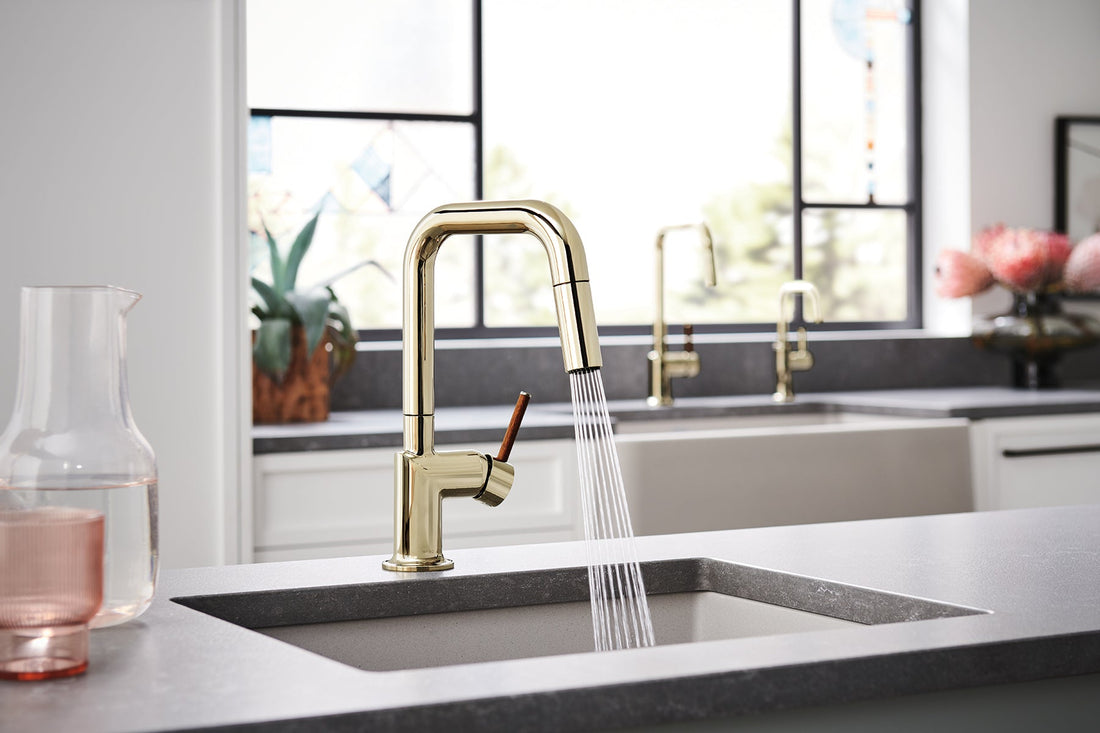Designing a sustainable kitchen is more than just a trend—it's a meaningful way to reduce your environmental footprint while creating a healthier, more cost-effective living space. By integrating eco-friendly materials, energy-efficient appliances, and smart water-saving solutions, you can craft a kitchen that aligns with your values and enhances your lifestyle. From using recycled or renewable materials for countertops and cabinetry to opting for LED lighting and water-efficient fixtures, the possibilities are endless for combining style and sustainability. This blog post will walk you through practical tips and innovative ideas to transform your kitchen into a modern, eco-friendly haven.
Water Efficient Kitchen Faucets:

Consider replacing old faucets with water-saving models to further reduce water usage in your home. Water efficient faucets are designed to use less water without compromising on performance, helping you save both water and money in the long run. Low-flow kitchen faucets are great options for conserving water in your home. These fixtures can help reduce water usage without sacrificing performance or comfort. Another option is to consider a water-efficient dishwasher to continue saving water throughout your household.
Sustainable Kitchen Countertops:

Eco-friendly Materials for kitchen countertops include options such as recycled glass, bamboo, and reclaimed wood. These materials not only reduce environmental impact but also add a unique and stylish touch to your kitchen design. Additionally, they are durable and easy to maintain, making them a practical choice for sustainable living. VOC-free countertops and paints are another sustainable option as well.
Sustainable Kitchen Using LED Lighting:

LED lighting can significantly reduce energy consumption and lower electricity bills. This type of lighting also lasts longer than traditional bulbs, reducing the need for frequent replacements and waste. By choosing LED lighting for your kitchen, you can create a more environmentally friendly space that is also cost-effective in the long run. Additionally, LED lights produce less heat, making them safer to use in the kitchen compared to traditional bulbs. Skylights and large windows for natural light is another great way to lighten up your kitchen space naturally.
Waste Reduction Strategies:

Additionally, implementing a recycling program for paper, plastic, and glass can help divert waste from landfills in your household. Encouraging your family to use reusable containers for lunch and reducing single-use items can also contribute to waste reduction efforts. These efforts can significantly reduce the environmental impact of the home and help create a more sustainable future. Setting goals in your household for waste reduction and regularly monitoring progress can help keep your family members accountable and on track towards sustainability.
There are many benefits of obtaining a sustainable kitchen design in your home. We encourage you to implement green solutions in your own kitchen that will reduced energy consumption, lower utility bills, and make a positive impact on the environment. By making these small changes, individuals can contribute to a more sustainable future for all.
